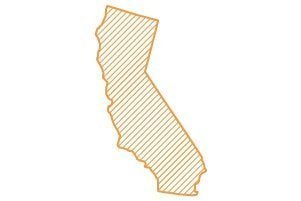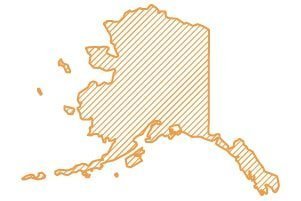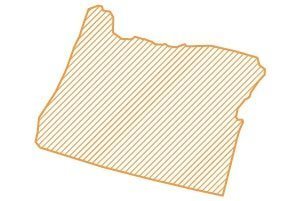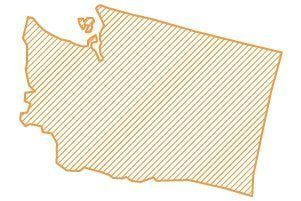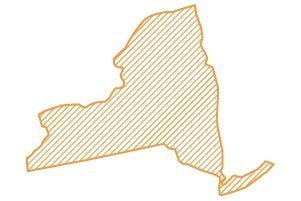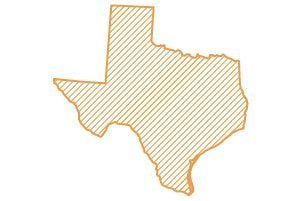Whether you’ve visited Hawaii or just dreamed of vacationing there, you probably already know a little about what the islands have to offer. For Hawaiian natives, however, the state is much more than just a vacation spot. With a vibrant culture, rich history, and diverse communities, Hawaii is truly unique.
Studying for your chosen degree in such a beautiful place may sound too good to be true, but if you’re looking for a library science program, it’s not! The University of Hawaiʻi at Mānoa has a master of library science and information degree program available, as well as dual degree options, a school library media specialist licensure, and an advanced certificate for those looking to pursue education beyond a master’s degree.
If you want to become a school library media specialist but don’t meet the University of Hawai’i’s program criteria, you can complete an educator preparation program instead.
If you want to become a librarian or school library media specialist in Hawaii, keep reading! This article will also discuss library jobs in Hawaii and typical salaries.
Sponsored Masters in Library Science (MLIS) Programs*
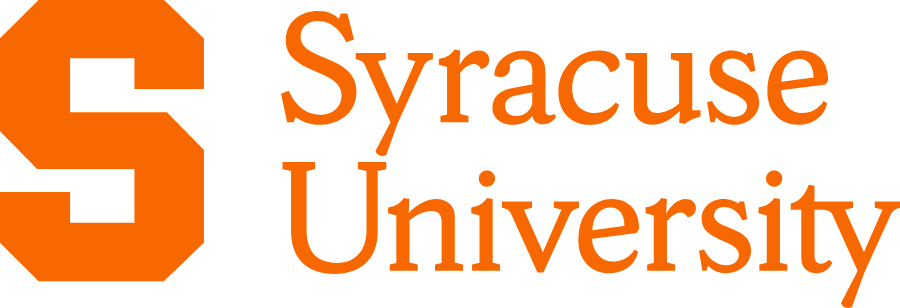
Master of Science in Library and Information Science Online: Syracuse University
Syracuse University offers an online MS in Library and Information Science. The program can be completed in 18 months and includes the option to specialize in School Media. No GRE required.*

Master of Library and Information Science Online: University of Denver
University of Denver’s Morgridge College of Education offers an online, ALA-accredited Master of Library and Information Science program. Learn from practitioners and gain the service-based skills needed to connect communities with information in the digital age. No GRE required.*

Master of Arts in Education Online , Literacy Education Concentration: Arizona State University
The Master of Arts in Education with a concentration in literacy education will equip you to be a literacy leader in any educational setting.*
ALA-Accredited Masters Programs in Library and Information Science in Hawaii
There is only one university in Hawaii accredited by the American Library Association—The University of Hawaiʻi at Mānoa. The school, which was initially established as the Colege of Agriculture and Mechanic Arts of the Territory of Hawai’i in 1907, has multiple branches across the state’s islands, but Mānoa is the home base.
Master of Library and Information Science (MLIS) at The University of Hawai`i at Mānoa
At the University of Hawaiʻi at Mānoa, getting your Master of Library and Information Science (MLIS) is a very personal endeavor. The school allows students to choose from a wide variety of courses to create a program that is individualized to them. Students must take 39 credits, with 18 being the six core courses, three being required opening and closing classes, and the rest being six electives in the student’s chosen track.
- ALA-Accredited
- 39 credit hours
- In-person with online options available
- Six pathways to choose from: Academic/Special Librarianship, Archives, Asian Studies Librarianship, a General/Custom program, Public Librarianship, or School Library Media
- Options to specialize in: Asian Studies Librarianship, Community & Cultural Informatics, or Information Technology
The six core classes (represented by six learning objectives) required by the University of Hawaiʻi at Mānoa fall under specific categories:
- Services
- Professions
- Resources
- Technologies
- Cultures
- Management
At the end of their program, students may choose to complete their degree in two ways. The first is by completing a thesis; after completing the first 15 credits of the program, students will propose a thesis topic which they will then spend the rest of their time at the school finishing. If students decide they don’t want to write a thesis, they can create a portfolio of materials gathered from their coursework and workplace experience that showcases their achievements and knowledge.
To gain entry into the University of Hawaiʻi at Mānoa’s library and information science master’s program, you must have a bachelor’s degree from any accredited college or university. You must have completed that degree with a GPA of 3.0 or higher (on a 4.0 scale).
How to Apply
Prospective students must complete the Graduate Admissions Application and send in transcripts from any academic institution they have studied at. They must also turn in an Applicant Information Form, two recommendation forms, and a Statement of Objectives. This statement is meant to help the admissions committee understand your writing ability. It must be 500-1,000 words and relate to the mission of the Program and why you believe it is a good fit for you.
Dual Degree Program
At the University of Hawaiʻi at Mānoa, students can combine their Master of Library and Information Science degree with another master’s degree from the university. Currently, you can combine your MLIS with the following:
- Asian Studies
- Hawaiian Studies
- Information & Computer Sciences
- Learning Design and Technology (formerly Educational Technology
- American Studies
- Hawaiian Language
- History
- Law
- Pacific Islands Studies
To begin a dual degree program, students must meet the admission requirements for both programs and submit two applications.
Advanced Certificates in Library and Information Science
After you’ve obtained your MLIS, you may feel done with school. However, if you didn’t get to study everything you hoped, or you’re looking for additional specialized work, you might consider getting an advanced certificate. This certificate might be helpful if you need continuing education credits or want to transition to a new type of library work.
Certificate in Advanced Library and Information Science (CALIS) at the University of Hawaiʻi at Mānoa
Students hoping to obtain a Certificate of Advanced Library and Information Science (CALIS) at the University of Hawaiʻi at Mānoa will get the option of creating a custom experience, just like the university’s Master of Library and Information Science degree program. Participants don’t earn another degree, exactly, but they do get to complete additional studies beyond their MLIS.
The program students create will consist of 15 credit hours, with one required course. Practicums or internships can be part of the program, as well as research. At the end of their studying, students will write a paper and present their work to the public. An advisor may also require additional materials depending on the agreement made with the student.
Participants must complete the program in less than five years, and cannot pause their work. If a student has to leave the program, they must reapply if they want to return.
How to Apply
To apply, candidates must have a professional resume or curriculum vitae, two letters of reference, a Statement of Objectives, and a post-graduate GPA of at least 3.30.
Sponsored Library Science (MLIS) Degree Programs*

Master of Science in Library and Information Science Online: Syracuse University
Syracuse University offers an online MS in Library and Information Science. The program can be completed in 18 months and includes the option to specialize in School Media. No GRE required.*

Master of Library and Information Science Online: University of Denver
University of Denver’s Morgridge College of Education offers an online, ALA-accredited Master of Library and Information Science program. Learn from practitioners and gain the service-based skills needed to connect communities with information in the digital age. No GRE required.*

Master of Arts in Education Online , Literacy Education Concentration: Arizona State University
The Master of Arts in Education with a concentration in literacy education will equip you to be a literacy leader in any educational setting.*
School Library Media Programs
In the state of Hawaii, students hoping to become school library media specialists must complete an MLIS in addition to a licensure program approved by the Hawaii Department of Education. The program must also comply with the Council for the Accreditation of Education Preparation guidelines.
School Library Media Specialist Licensure at the University of Hawaiʻi at Mānoa
If you want to become a school library media specialist, you can combine your Master of Library and Information Science degree at the University of Hawaiʻi at Mānoa with their specialist licensure program.
In addition to completing the requirements for the MLIS and licensure, students must also take (or have already taken in previous studies) education classes. These required classes include developmental psychology, instruction and curriculum, reading, and student teaching. You can also take these while you complete your MLIS.
Those seeking the school library media specialist licensure must complete additional courses in the library science field as well, including practical experience and classes in children and youth services.
Hawaii State Approved Teacher Education Program
The Hawaii Board of Education may choose to allow educators to demonstrate their expertise as school library media specialists and earn licensure without attending a traditional school library media specialist program. There are three ways a person can do this:
- Earn at least 450 hours of experience through either student teaching, an internship, or a residency.
- A combination of work experience and observation by the State Approved Teacher Education Program.
- A combination of work experience, observation, and a performance assessment.
Individuals may also be able to become certified as school library media specialists by completing an educator preparation program. These can be taken outside of Hawaii, as long as the program would result in a teaching license.
How to Become a Librarian in Hawaii
Hawaii is different from other states in many ways, but when it comes to joining the library profession, the state’s standards aren’t that uncommon. Generally, a master’s in library and information science is required for most librarian positions, and it should be from an ALA-accredited school.
Below are common library jobs in Hawaii and their requirements:
Librarian: Hawaii is home to several public and academic libraries, all of which need librarians. There are many directions a librarian position could go, including reference, circulation, children’s, research, or instruction. An MLIS is required for these positions, and experience in a library setting is also helpful.
Library Assistant: Library assistants help out in libraries in many different ways. They might check out books, reshelve materials, help patrons or students with technology, clean, or various other introductory duties. This is a great position for someone just starting out in the field, as it generally only requires a high school diploma and customer service experience.
Library/Branch Manager: All libraries have someone (or multiple people) overseeing the daily operations of the building. Some libraries have multiple branches, requiring several people to work together to manage the library system effectively. To get a job as a library or branch manager, you must have an MLIS and several years of experience in libraries.
What Else Can You Do With a Library Science Degree in Hawaii?
Hawaii is a vacation destination for many, but thousands also call the islands home. Respecting the native people of Hawaii and their culture and history is an important part of living and working there. If you do decide to complete your library science degree in Hawaii, you have several options for jobs.
You might think you’re limited to library jobs if you have a library science degree, but this isn’t the case. Many with MLIS degrees get jobs that aren’t in libraries at all. Library science prepares you for work in data analysis, science, communications, education, technology, and so much more.
In Hawaii, a librarian with a background in science or technology has a lot of potential because of all the scientific research happening on the island. There are also several cultural institutions, which means someone interested in museum studies or archives can easily find a job there.
Salary Opportunities
In 2021, the average salary for a librarian in Hawaii was $71,990. Librarians at colleges or universities made $63,439 on average, while those at elementary or secondary schools got $62,516 annually. Those working in information science outside of libraries made a little less, with an average salary of $51,055, while local government librarians made approximately $60,984 each year.
Additional Resources
For more information about libraries in Hawaii, visit: https://portal.ehawaii.gov/residents/libraries/
For more information about librarianship and Library Science, visit: https://www.ala.org/
For more information about the Hawaii State Approved Teacher Education Program, visit: https://hawaiiteacherstandardsboard.org/content/preparation-programs-2/


